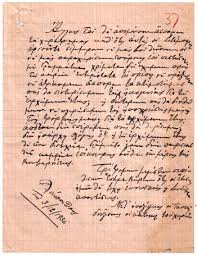
The BC Court of Appeal in Xu v Hu 2021 BC CA 2 overturned a finding of the trial judge who had found an express trust over a parcel of property.
The appeal court found that the findings of fact did not establish the certainties of intention and object necessary to establish an express trust.
In order for a valid trust to be constituted, there must be certainties of intention, subject and object of the trust, and when the property has been vested in the trustee, and express trust is created.
Very often in the X decision, the question is one of what was the intention of the settlor- to make a gift or a trust?
What Is a Trust?
“A trust is the relationship which arises whenever a person (called the trustee) is compelled in equity to hold property, whether real or personal, and whether by legal or equitable title, for the benefit of some persons (of whom he may be one, and who are termed beneficiaries) or for some object permitted by law, in such a way that the real benefit of the property accrues, not to the trustees, but to the beneficiaries or other objects of the trust.”
What Is an Express Trust?
In Suen v Suen 2013 BCCA 313 the court stated:
“ An express trust is created when the requirements of certainty of intention, subject, and objects of the transfer have been established and the trust property has been vested in the trustee: Waters at 132 and 167. Where the trust property has not been vested in the trustee, and there is no way of compelling the settlor to do so, this “incompletely constituted trust” or “shell of a trust” does not operate as a trust and has no legal significance: Waters at 167. Waters describes the “one golden rule” for the creation of a trust (at 168):”
The onus of establishing each of the certainties lies with the party asserting the trust’s existence: McInerney v. Laass, 2015 BCSC 1708at para. 36. The standard of proof is the usual civil balance of probabilities: Pavlovich v. Danilovic, 2020 BCCA 239at para. 27.
Certainty of intention is a question of fact; certainty of subject and object are questions of mixed fact and Law: Grewal v. Khakh, 2018 BCCA 357at para. 24. Thus, the trial judge’s conclusion that the requisite certainties were satisfied is reviewable on a standard of palpable and overriding error, except for any extricable questions of law, which are reviewable on a standard of correctness: Housen v. Nikolaisen, 2002 SCC 33.
The settlor’s intention is the critical element for the creation of an express trust. As explained by Deschamps J.: “Express or ‘true trusts’ arise from the acts and intentions of the settlor and are distinguishable from other trusts arising by operation of law”: Century Services Inc. v. Canada (Attorney General), 2010 SCC 60at para. 83. As explained by A. H. Oosterhoff, Robert Chambers & Mitchell McInnes in Oosterhoff on Trusts: Text, Commentary and Materials, 8th ed. (Toronto: Carswell, 2014) at 193 — 194:
Certainty of intention is a question of construction.
The intention may be express or implied, it may arise from words or acts.
Technical language need not be used. A settlor may create a trust without using the word “trust” and, indeed, without fully understanding the concept of trusteeship.
Intention ultimately is a matter of substance rather than form. Language alone cannot create a trust.
In the Xu decision the evidence was that Mr. HU told Ms. Hu and others that the property in dispute was being GIFTED to Ms. Hu.
The use of the word gift while not conclusive , is very strong indication that a gift was intended, not a trust.
There is a presumption that parties usually intend to gift, but rarely constitute themselves as trustees. ( Oosterhoff at 256)
The court is not at liberty to constitute words other wise that according to their proper meaning.
Further complicating what the intention of the settlor was, in British Columbia trusts are exempted from the general requirement that dispositions of land must be evidenced in writing as per S. 59 (1) of the Law and Equity Act.




